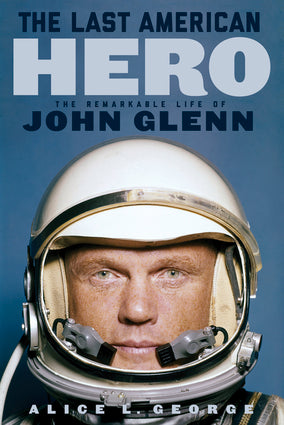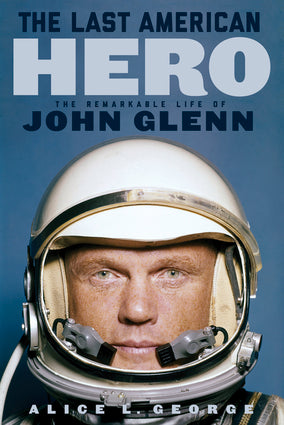1
/
of
1
Independent Publishers Group
The Last American Hero The Remarkable Life of John Glenn By Alice L. George
The Last American Hero The Remarkable Life of John Glenn By Alice L. George
Regular price
$30.00
Regular price
Sale price
$30.00
Unit price
/
per
Shipping calculated at checkout.
Couldn't load pickup availability
Examines the many layers that formed the man and unravels the reasons for his singular American Hero role
On February 20, 1962, John Glenn became a national star. That morning at Cape Canaveral, a small-town boy from Ohio took his place atop a rocket and soared into orbit to score a victory in the heavily contested Cold War. The television images were blurry black-and-white phantoms. The cameras shook as the rocket moved, but by the end of the day, one thing was clear: a new hero rode that rocket and became the center of the world's attention for the four hours and fifty-five minutes of his flight. From that day forward, Glenn restively wore the hero label. Refusing to let that dramatic day define his life, he went on to become a four-term US senator—and returned to space at the age of seventy-seven. He was a creation of the media, in some ways, but he was also a product of the Cold War. At a time when increasingly cynical Americans need heroes, his aura burns brightly in American memory.Share


